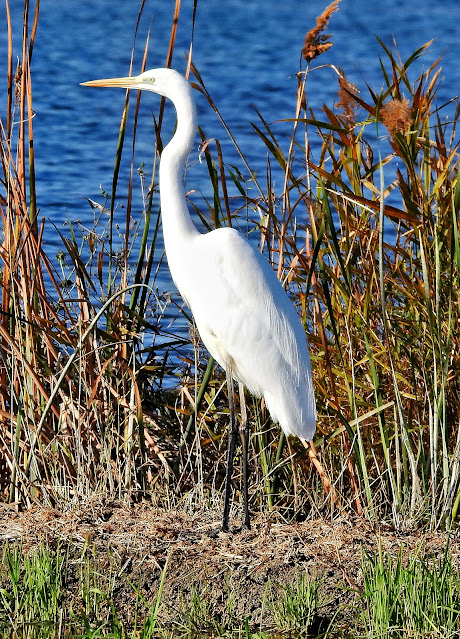The great egret (Ardea alba), also known as the common egret, large egret, or (in the Old World) great white egret or great white heron is a large, widely distributed egret. The four subspecies are found in Asia, Africa, the Americas, and southern Europe. Recently it is also spreading to more northern areas of Europe. Distributed across most of the tropical and warmer temperate regions of the world, it builds tree nests in colonies close to water.
The great egret is generally a very successful species with a large and expanding range, occurring worldwide in temperate and tropical habitats. It is ubiquitous across the Sun Belt of the United States and in the Neotropics.
The great egret forages in shallow water or in drier habitats, feeding mainly on fish, frogs, other amphibians, small mammals (such as mice), and occasionally small reptiles (such as snakes), crustaceans (such as crayfish) and insects (such as crickets and grasshoppers). This species normally impales its prey with its long, sharp bill by standing still and allowing the prey to come within the striking distance of its bill, which it uses as a spear. It often waits motionless for prey or slowly stalks its victim.


